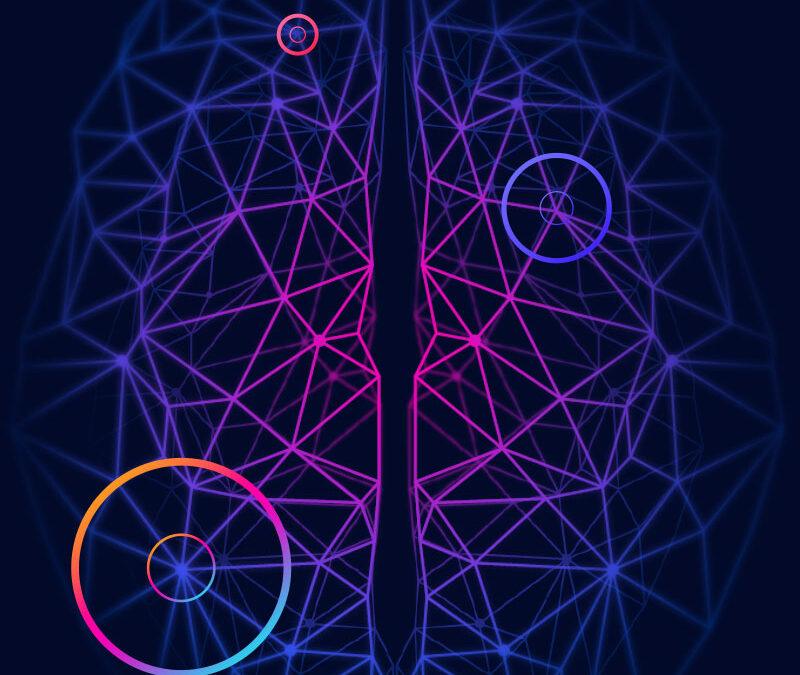M.Ad has been managing advertising campaigns for providers of Transcranial Magnetic Stimulation for years. We’ve amassed a wealth of data on reasonable KPI’s to expect from your advertising efforts.
As the use of transcranial magnetic stimulation (TMS) grows in popularity, so does the need for accurate and effective advertising. When it comes to TMS, key performance indicators (KPIs) are essential for assessing treatment efficacy and patient outcomes. In this blog post, we’ll explore how to craft effective TMS advertisements using healthy KPIs. By understanding and utilizing these KPIs, you can provide potential patients with the information they need to make informed decisions about their treatment options.
TMS is a non-invasive procedure used to treat depression, anxiety, and other mental disorders
Transcranial Magnetic Stimulation (TMS) is a revolutionary non-invasive procedure that has provided much-needed hope to sufferers of depression, anxiety, and other mental health disorders. TMS can be comfortably administered right in the doctor’s office, typically taking anywhere from twenty to forty minutes at a time. The treatment works by delivering magnets to the areas of the brain responsible for mood regulation and thought processes through a device placed on the patient’s head. The effects of this type of therapy are long-lasting; many find that their symptoms improve — or even disappear — after completing just one session! Not only does this procedure offer real relief for struggling individuals, but it also does so without any serious side effects. TMS is an excellent treatment option for those looking for safer alternatives to prescribed medications or invasive surgery.
TMS is effective in treating these conditions with few side effects
Transcranial Magnetic Stimulation (TMS) is a non-invasive yet effective therapy for treating mental health challenges such as depression, bipolar disorder, and PTSD. Although TMS has been available for a relatively short time, there is ample evidence to suggest that it is an effective treatment with few side effects. It not only offers patients much-needed relief from the distressing symptoms of mental health conditions but can also help reduce their reliance on medication to manage them. Not only this, unlike other treatments such as Cognitive Behavioral Therapy, TMS provides quick results and may offer more sustained remission of symptoms in some cases. This makes it an attractive option for those seeking fast and lasting relief.
TMS is an FDA-approved treatment option for those who have not responded to other treatments
Transcranial Magnetic Stimulation (TMS) is an FDA-approved treatment option for people who have depression that has not responded to other treatments, such as antidepressant medications and psychotherapy. TMS is a non-invasive procedure that works by delivering repeating electromagnetic pulses directly to the areas of the brain involved in mood regulation. It stimulates nerve cells and increases activity in the areas of the brain associated with mood, helping to improve symptoms such as depression. While there may be side effects such as headaches or scalp discomfort during treatment sessions, these generally diminish over time and no long-term side effects have been reported. The procedure is conducted in an outpatient setting without the need for anesthesia or sedation, making it a minimal-risk treatment option for those suffering from depression.
Despite its effectiveness, TMS is not widely known or advertised, which limits its use
Transcranial magnetic stimulation (TMS) is an innovative medical technology for treating certain psychological conditions, such as depression and anxiety. It has been demonstrated to be a safe and effective way to reduce symptoms quickly. Unfortunately, despite its impressive efficacy, many are not aware of this treatment option — due to the lack of advertising or promotion. Without wider recognition, TMS remains underutilized as a potential remedy for mental health issues, limiting its efficacy in relieving distress and improving quality of life. Though more research is needed to better understand how TMS can be most effectively employed, current findings suggest that it has enormous potential — if only more people knew about it.
Advertising TMS could increase awareness of the treatment and lead to more people seeking help
Advertising therapeutic magnetic stimulation (TMS) could be a powerful tool in reducing the stigma associated with mental health and improving mental healthcare access. Studies suggest that providing targeted ads about TMS to individuals who are most likely to benefit from this treatment could greatly increase awareness of the treatment and lead to more people seeking help who otherwise wouldn’t have known about it. Advertising TMS through radio, television, print or digital media sources could offer much-needed hope for those struggling with severe depression, anxiety, and other mental health issues. A potential benefit of advertising TMS is that it encourages people to recognize their needs as symptoms of disorders and feel empowered to seek the treatment they may not be aware of or initially seek out due to stigma or fear. Doing so allows them to move beyond self-isolation, gain access to potentially life-changing treatments, and progress on their path towards healing – something many desperately seek but few find the courage to actively pursue.
Transcranial magnetic stimulation is a safe and effective treatment option that should be more widely advertised
Transcranial magnetic stimulation (TMS) has emerged as an exciting and non-invasive alternative to treating a wide range of neurological and mental health conditions. The therapy uses targeted pulses of electromagnetic energy to stimulate nerve cells in the brain, which may relieve symptoms that have not responded well to traditional medications. Studies show that TMS is safe and the risk of complications is very low. Although it is gaining traction in the medical community, there needs to be a wider promotion of its potential benefits so that more people can access it as an effective treatment option for their health concerns. By increasing awareness about TMS, we can let more individuals know about this amazing therapeutic breakthrough that may just prove to be life-changing for them.


